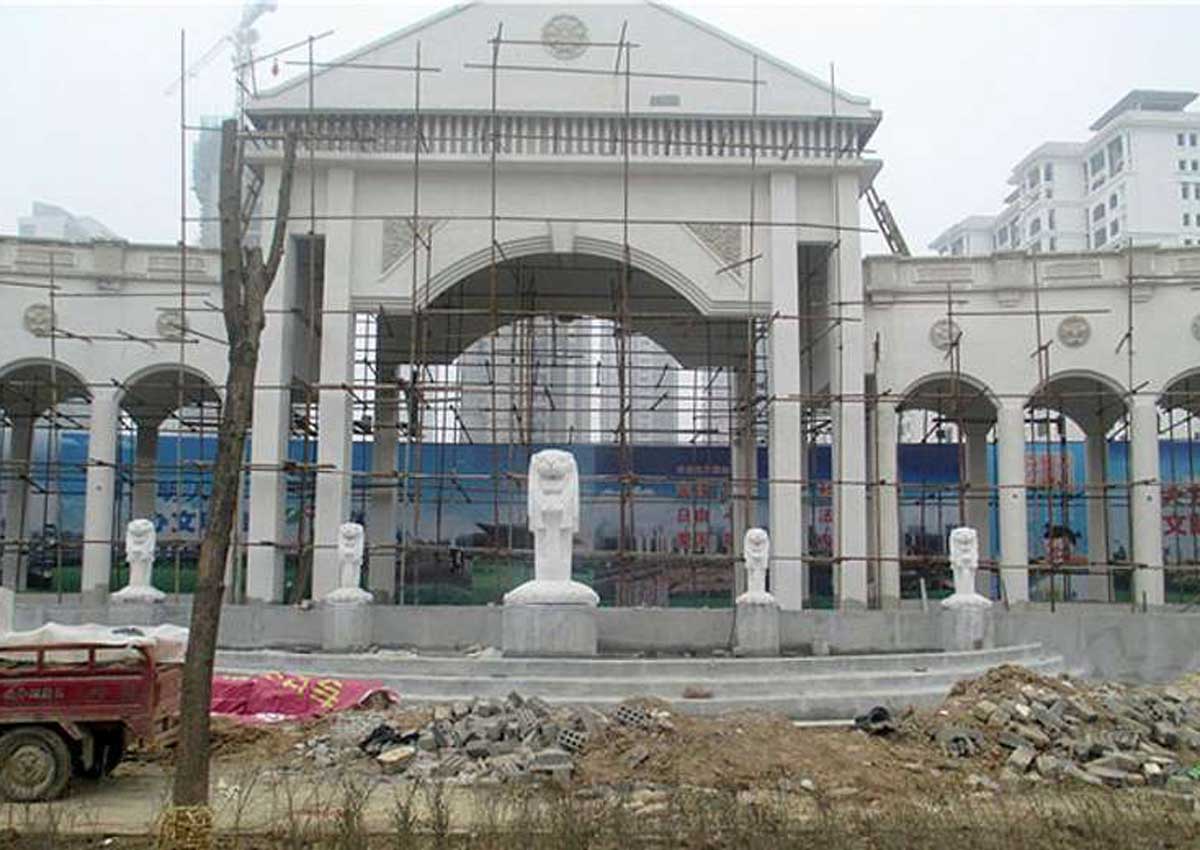In the city of Zhumadian in central Henan, a residential estate boasts East-West architecture, lots of greenery and Merlion statues at its entrance.
Called Singapore Garden, it is one of more than a dozen property developments in China that boast the Singapore name. But most have no ties with the island republic.
Residential estates with names like Singapore City and Singapore Garden can be found in major cities, including Chengdu, Changchun and Hefei. There is also a Holland Town in Shanghai, a Vienna Woods in Zhengzhou and an Oriental Yosemite in Dalian, just to name a few.
They are all part of a strategy by Chinese developers to project exclusivity and boost sales.
But now the future of these estates is in doubt after the government recently labelled such names in property developments, roads and bridges “bizarre”.
Civil Affairs Minister Li Liguo last month said foreign names that “damage sovereignty and national dignity” or “violate the socialist core values and conventional morality” will be stamped out.
Property developers, including the one behind Singapore Garden in Zhumadian, are worried, particularly in lower-tier cities where the property market is already sluggish due to oversupply.
“We designed our estate to be like Singapore, which is a garden city. It is the main reason people bought units here,” said a sales agent who did not want to be identified.
“If we change the name now, the name will be incompatible with the design. It will upset many buyers and we will have to reprint all our publicity material.”
A developer of a residential estate called Barcelona, in northern Liaoning’s Panjin city, called the government move “unrealistic”.
“The title deeds already have our estate’s name. It’s absurd to ask all our home owners to make changes to them,” said a representative, who asked to be called Ms Lui. “I’m sure many will not agree to do so.”
The move to root out foreign names comes amid the government’s push in recent years, under President Xi Jinping’s leadership, to promote “Chinese values” as a bulwark against Western influence.
Mr Li’s comments were made as part of a review of an official geographical survey, which began in 2014 and is expected to be completed in 2018. His ministry said more foreign names were being adopted as traditional names disappeared.
“Some cities have multiple ‘Manhattan’ or ‘Venice’ roads. It is not only an inconvenience for travellers, but also erodes the sense of home.”
It is unclear how rigid the government intends to be with its clampdown. Officially, China has had a regulation since 1996 banning foreign names, but this has never been strictly enforced.
A news article in Chinese Communist Party mouthpiece People’s Daily on Sunday criticised the practice, saying foreign names were driven by “commercial promotion” and served only to give the “irrational” impression that a place was of higher quality.
But many Chinese netizens were against the authorities’ move, saying it should be the right of developers to pick names. One asked on Weibo: “If a European-style residential estate was called the Forbidden City, wouldn’t it be even weirder?”
Additional reporting by Lina Miao

This article was first published on April 12, 2016.
Get a copy of The Straits Times or go to straitstimes.com for more stories.






